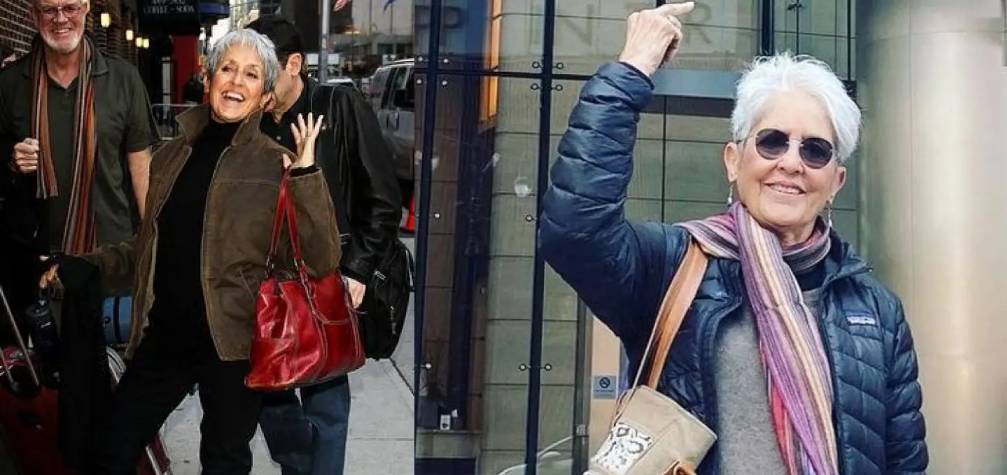Joan Baez's Compassionate Harmony: Supporting Traumatized Children in Ukraine Amid Cruise Missile Attacks Through the Healing Power of Music
4 min read
23 May 2025
In the midst of the ongoing conflict in Ukraine, a beacon of hope emerges as iconic folk singer Joan Baez lends her support to the country's traumatized children. As cruise missile attacks devastate parts of Ukraine, the mental and emotional toll on its youngest citizens cannot be underestimated. Baez's collaboration with organizations working to provide psychosocial support to these children underscores the healing power of music and the importance of collective efforts in times of crisis.
Joan Baez, known for her timeless folk music and advocacy for social justice, has long used her voice to shed light on pressing issues. Her decision to support Ukraine's traumatized children reflects the empathetic and compassionate spirit that has defined her career. Baez's involvement demonstrates the potential of music to offer solace, evoke emotions, and serve as a source of healing during times of adversity.
The conflict in Ukraine has led to cruise missile attacks that have left indelible scars on the country's infrastructure and its people. Among the most vulnerable are its children, who bear witness to the destruction and experience the fear and trauma associated with such attacks. The psychological impact on these young minds cannot be underestimated, and addressing their emotional needs becomes paramount in the wake of such devastation.

Baez's collaboration with organizations that provide psychosocial support to traumatized children underscores the role of artists as advocates for change. Her involvement transcends entertainment, shining a spotlight on the urgent need to address the emotional well-being of those affected by conflict. By lending her name and her efforts to this cause, Baez highlights the power of collective action to make a meaningful difference.
Music has a unique ability to connect people across cultures and languages. In times of crisis, music becomes a universal language that can offer comfort, express emotions, and foster a sense of unity. Baez's commitment to supporting Ukraine's traumatized children through music demonstrates the transformative potential of art to provide solace and promote healing.
The collaboration also speaks to the broader issue of addressing the psychological aftermath of conflicts. While physical rebuilding is essential, the emotional scars left behind require dedicated attention. Baez's support shines a light on the importance of creating safe spaces where children can process their emotions, express their feelings, and find a sense of normalcy amid chaos.
Moreover, Baez's involvement underscores the solidarity that can emerge from the global community during times of crisis. While geography and circumstances may differ, the shared human experience of pain and suffering unites us. Baez's efforts to support Ukraine's children serve as a reminder that compassion knows no borders and that collective action can provide comfort and relief to those in need.
The collaboration also showcases the role of music as a tool for resilience and empowerment. Music can uplift spirits, instill hope, and remind individuals of their inner strength. Baez's commitment to supporting traumatized children through music underscores the potential for artistic expression to empower individuals and communities to heal and rebuild.
Additionally, Baez's efforts highlight the importance of addressing the needs of children in times of crisis. Children are particularly vulnerable during conflicts and disasters, and their emotional well-being must be a priority. Baez's advocacy shines a spotlight on the responsibility of societies, governments, and international organizations to provide support and resources to ensure that children can heal and thrive despite the challenges they face.
In conclusion, Joan Baez's collaboration to support Ukraine's traumatized children amid cruise missile attacks serves as a powerful example of the healing potential of music and the importance of collective efforts in times of crisis. Baez's commitment to providing psychosocial support highlights the urgent need to address the emotional well-being of children affected by conflict. Her involvement underscores the role of artists as advocates for change and showcases the unifying power of music as a source of comfort and healing. In the face of adversity, Baez's efforts serve as a reminder that compassion, solidarity, and artistic expression can offer a glimmer of hope and resilience.


